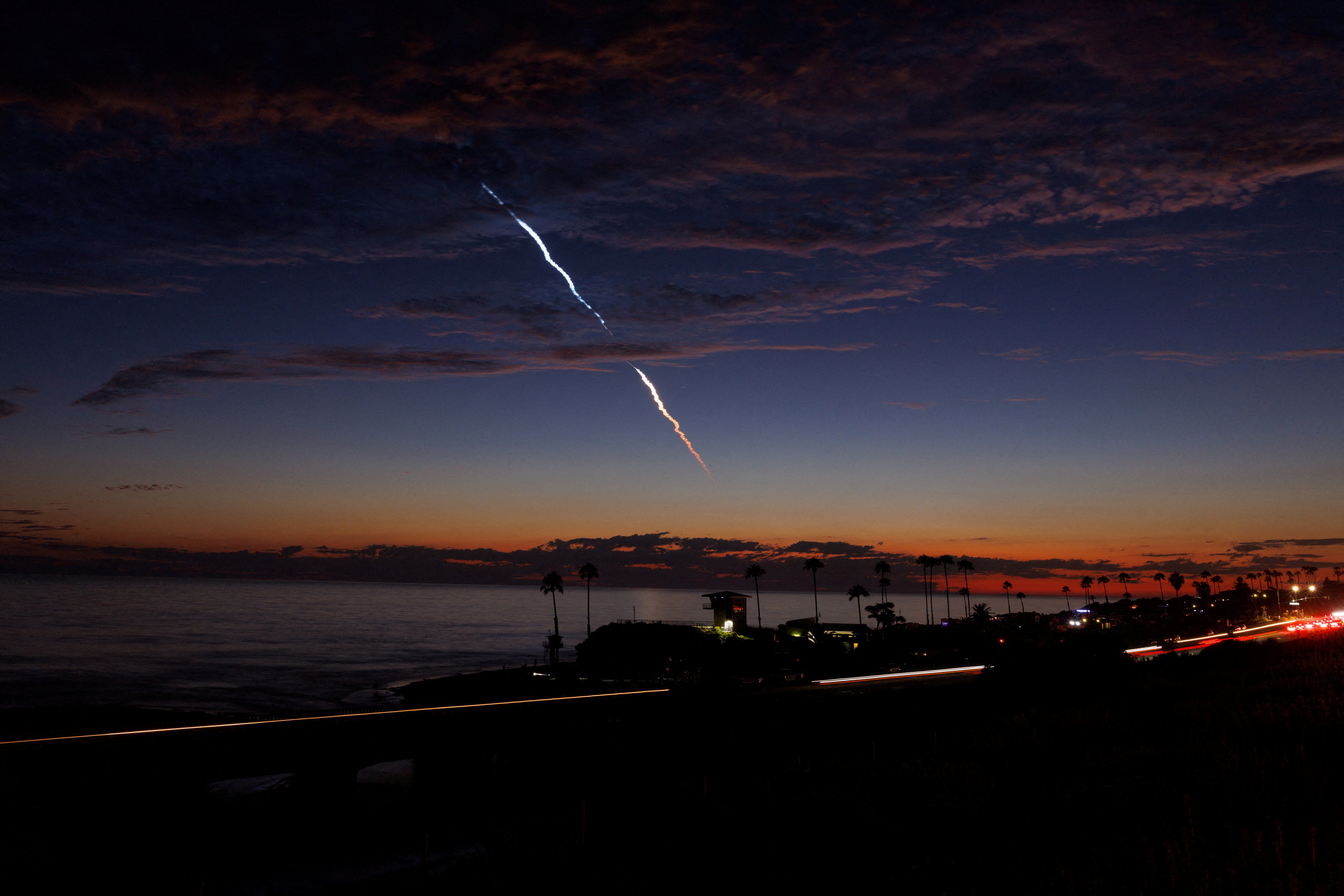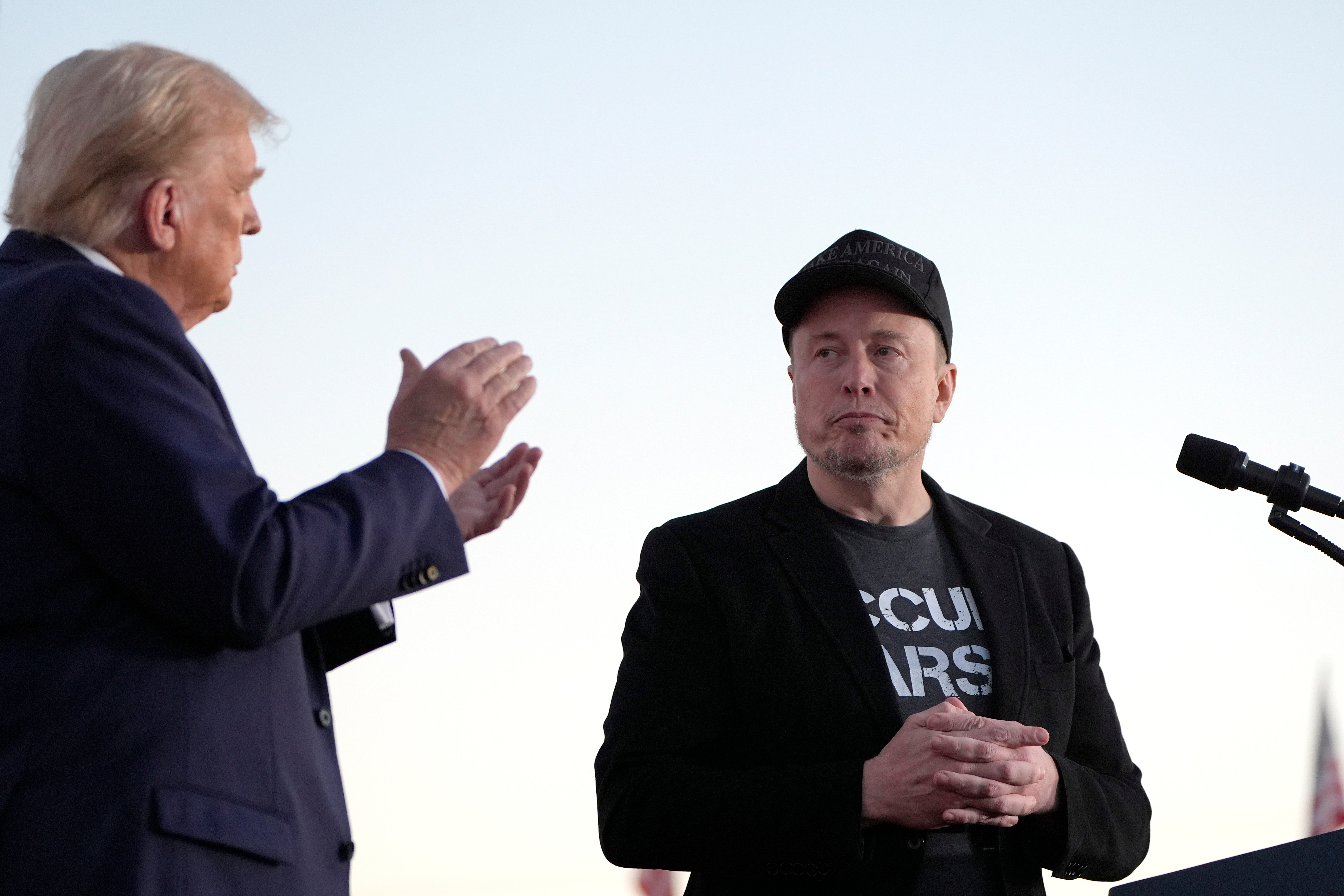SpaceX sues California panel that shut down its rocket launches for ‘political bias’

Your support helps us to tell the story
This election is still a dead heat, according to most polls. In a fight with such wafer-thin margins, we need reporters on the ground talking to the people Trump and Harris are courting. Your support allows us to keep sending journalists to the story.
The Independent is trusted by 27 million Americans from across the entire political spectrum every month. Unlike many other quality news outlets, we choose not to lock you out of our reporting and analysis with paywalls. But quality journalism must still be paid for.
Help us keep bring these critical stories to light. Your support makes all the difference.
Elon Musk’s aeronautics company SpaceX is suing a California regulator over what it claims is “naked political discrimination” that resulted in a decision not to allow additional rocket launches from the Vandenberg Space Force Base.
The 45-page suit, filed on Tuesday in the state’s central district, alleges that the California Coastal Commission violated the rights of free speech and ignored longstanding federal policy and law. It cited an October 10 hearing, during which SpaceX said commissioners had said the decision was based on the political views held by Musk.
“The Commission’s public hearing record indisputably shows overt, and shocking, political bias. There is no pretext — the political basis of the Commission’s action is plain for all to see,” SpaceX attorneys wrote.
The company claimed that it was rare for a government agency to make it “so clear” that it was exceeding its authorized authority to “punish” a company for the political views and statements of its largest shareholder and chief executive.
The California Coastal Commission declined to comment on the lawsuit on Wednesday. A request for comment from SpaceX, its attorneys, and the Vandenberg Space Force Base was not immediately returned.
On Tuesday afternoon, Musk took to his social media platform X to blast the committee.
“The Coastal Commission has one job – take care of the California coast. It is illegal for them to make decisions based on what they (mostly wrongly) think are my politics,” he wrote.
“For example, I have done more to advance sustainable energy & help the environment than maybe anyone ever, which is not exactly a “far-right” position. Yet here they are shamelessly breaking the law!”
Musk called on members to “resign immediately” and face legal consequences for their actions.
Musk’s reaction comes after the commission rejected a request by Space Force to give SpaceX permission to launch up to 50 rockets each year – right now, it can launch 36 – from the southern California Vandenberg Space Force Base. The commission rejected the request by six votes to four.
The base, which stretches over 40 miles of coastline, is home to more than 17 endangered or threatened species of plants and animals. But, SpaceX says the commission recently found its Falcon 9 rocket launches are consistent with coastal resource protection and that it had worked with the Air Force to identify and implement measures to mitigate any impacts more launches could have on coastal resources.
Falcon 9 rockets use rocket-grade kerosene as a propellant: a fossil fuel that can contribute to the planet’s warming. Most rockets in use today run on fossil fuels.

“The Commission’s own staff recommended concurrence in detailed staff reports. But at its October 10 hearing on the Air Force’s proposal, the Commission voted 6-4 not to concur,” the lawyers said, noting that the commission now requires SpaceX to obtain a coastal development permit to conduct launches from the base. That’s something they say flies in the face of federal policy, law, and the commission’s own established practices and findings.
In that statement made during the hearing, Commissioner Gretchen Newsom, who has no relation to the California governor, referenced Musk’s social media posts about the 2024 presidential election and Hurricane Helene.
“Right now Elon Musk is hopping about the country, spewing and tweeting political falsehoods and attacking FEMA while claiming his desire to help the hurricane victims with free Starlink access to the Internet,” she said, something she said was a “falsehood.”
Musk helped to spread misinformation about FEMA funding for hurricane survivors earlier this month.
Newsom also called SpaceX’s workplace safety record into question, and asserted Musk had an anti-California agenda, including “bigoted beliefs against California’s safeguards and protections over our transgender community.”

Musk announced in July that he would move the headquarters of SpaceX and social media company X from California to Texas.
In a post on X, Musk said the commission’s statements at the hearing were, “Totally insane!”
But, even after the commission’s vote, SpaceX may still be able to increase its launch rate from California. As a major government contractor, military officials believe launches from the base are a federal agency activity.
“We are assessing the outcome from Thursday, and it is too soon to comment on launch cadence beyond the current capacity constraint,” Colonel Mark Shoemaker, the commander of the Space Force unit that oversees Vandenberg, said in a statement provided to The Wall Street Journal.
The commission, an independent, quasi-judicial agency that was established by voter initiative in 1972 and later made permanent through the 1976 adoption of the California Coastal Act, plans and regulates the use of land and water in the coastal zone. Development in this zone generally requires a coastal permit from the condition or the local government. Its 12 members are appointed by the governor, the Senate Rules Committee, and the Speaker of the Assembly.
Earlier in the year, the California Supreme Court said it would consider whether the commission could inject itself into the local land-use approval process and overrule a local government’s prior approval of new housing permits.



/cdn.vox-cdn.com/uploads/chorus_asset/file/25756939/Home_Sports.jpg?w=390&resize=390,220&ssl=1)
